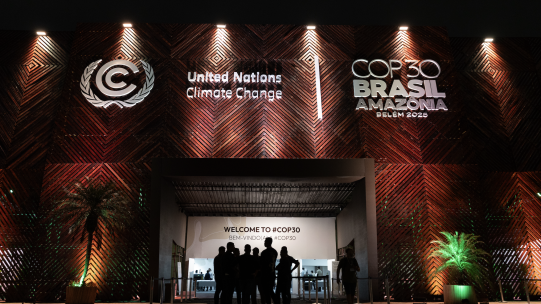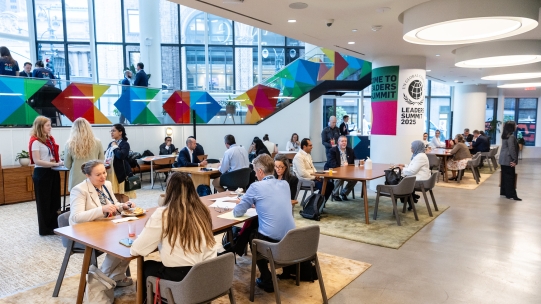Small loans amount to big business for KWFT and life-enhancing outcomes for women in rural Kenya
Read more
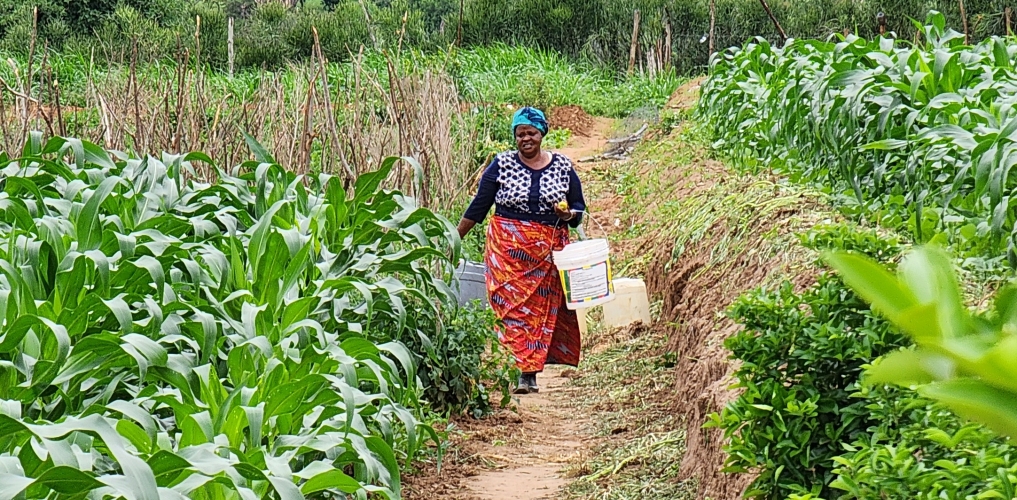
When Phyllis Ndabuki first came to live with her husband in the hills above Machakos, Kenya, the only skill the 21-year-old bride had to contribute towards her new family’s income was making skipping ropes from sisal for local children.
But most of her time was taken up with the back-breaking, unpaid work of carrying water from the river up to the homestead for cooking and washing. So when a representative from KWFT, the Kenya Women’s Microfinance Bank, encouraged her to join a group of other women to access a small loan, she jumped at the opportunity to request a loan to buy and install a water tank to collect and store rainwater at the house.
Through determination and hard work, Phyllis was able to repay the 10,000 Kenyan Shillings water tank loan (USD75) within 12 months by selling her ropes.
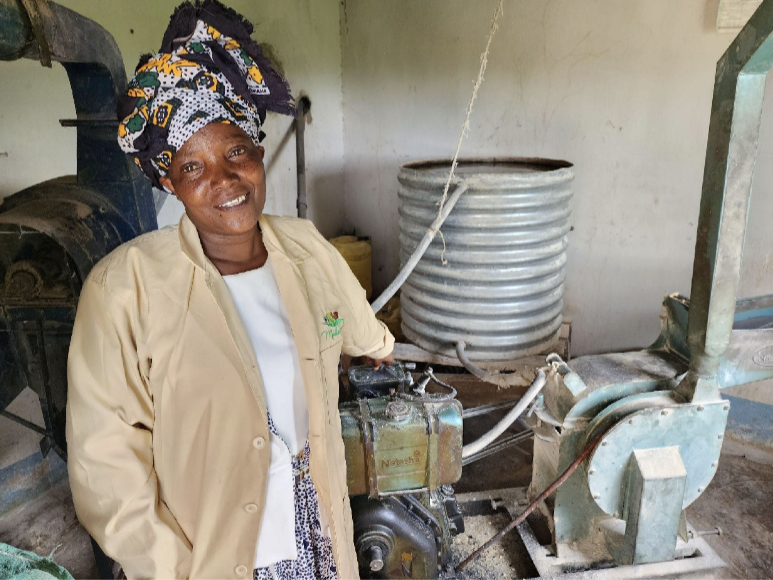
Today, 30 years later, Phyllis is one of KWFT’s star clients employing several workers and running several businesses from her hillside homestead. Her enterprises include a small farm with poultry and five cows, a general store and butcher’s shop, a barber shop and a “posho” mill to grind her neighbours’ maize into flour. She had also borrowed from KWFT to purchase a grain silo in which she stores cereals harvested from her farm.
With another loan from KWFT, she recently bought a tractor which she used to dig a small reservoir and now rents out to other local farmers. For her next loan, she wants to take driving lessons and buy a car so she can transport her goods to nearby markets and even to the capital, Nairobi.
“When I first came here, life was so hard and getting water was a real problem especially. But I now have four water tanks and can harvest rainwater from my roof. I’m so grateful to KWFT for the way they have supported me over the years. The loans I have taken have lifted the entire family from poverty,” she said.
Started in 1981, KWFT provides small loans to some 800,000 female customers, the vast majority in rural areas far from banks or financial services. KWFT staff travel to their customers on motorbikes and encourage them to form groups to help new women understand the opportunities that small loans can offer. The Kenyan lending institution is known throughout the country by its original acronym KWFT.
“We provide life-touching product loans,” said Euphrasia Bulinda, General Manager for KWFT’s 30 branches in Eastern Zone. “When we started, these women who were often uneducated and without any form of collateral were considered unbankable. But like everyone, they have aspirations.”
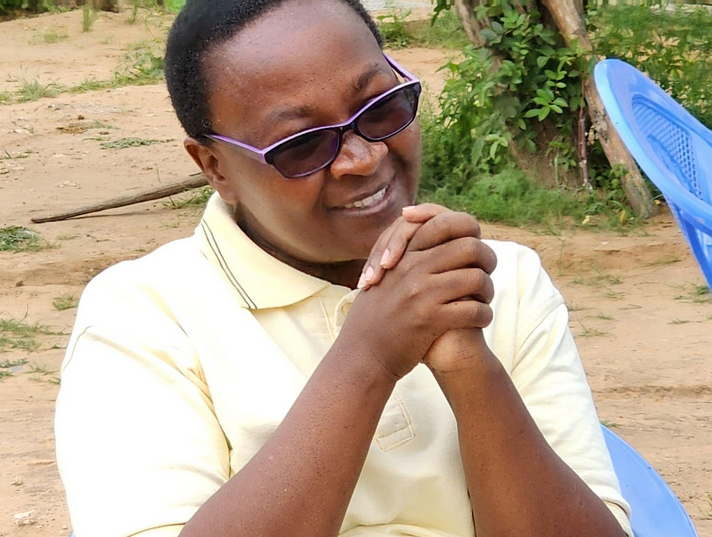
Having worked so closely with rural women, KWFT has tailored their business to every aspect of their clients’ lives. As trust builds and early loans are repaid in full and on time, the bank also provides loans for school and university fees, toilets, home improvement, solar panels and efficient cooking solutions. Customers can take up to four loans at once.
“We support Kenyan families through the women and offer free training programmes too. We even provide loans for bathrooms and toilets, which bring dignity and, since many of our customers are not connected to the national grid, we also give loans for solar lighting products,” Euphrasia said. “Making profit is not the most important thing. Instead, we aim to solve people’s problems.”
Now 50 years old, Phyllis has not only built up her many businesses but also educated her four children with loans from KWFT. She currently has a son at university and has become a pillar of her community, sitting on the school board and chairing five community groups.
Across the valley, Rose Syomiti Musunga, aged 56, is another successful entrepreneur who has, with loans from KWFT, built several businesses around her homestead and now chairs a circle in her community to help other women benefit from the loans on offer.
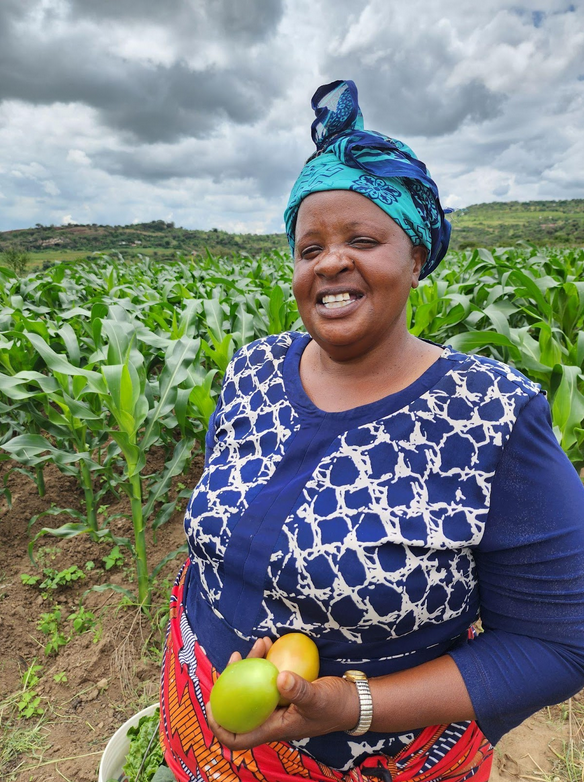
Rose started off as a hawker selling clothes from the roadside. Thirty years later, she uses a digital marketing app to sell fabrics, shoes, and school uniforms. With other loans, she has also established a successful tomato farm on a well-irrigated five acres of family land.
Even though purpose has been central to the microfinance bank’s success and they have been building their business to support women for over 40 years, KWFT signed up to the Women’s Empowerment Principles (WEPs) and joined the UN Global Compact as recently as 2022. But as their CEO Mwangi Githaiga explains, those commitments are proving highly valuable.
“The Ten Principles of the Global Compact and the Sustainable Development Goals give us the direction, a true north, that we are looking for and helps us as we develop our strategy. It also helps me engage at the Board level for better support on resource allocations for sustainability ventures and investments. Also, at the employees level, our staff now have a very clear idea of why we do what we do and what we can achieve when we support women and their families,” he said.
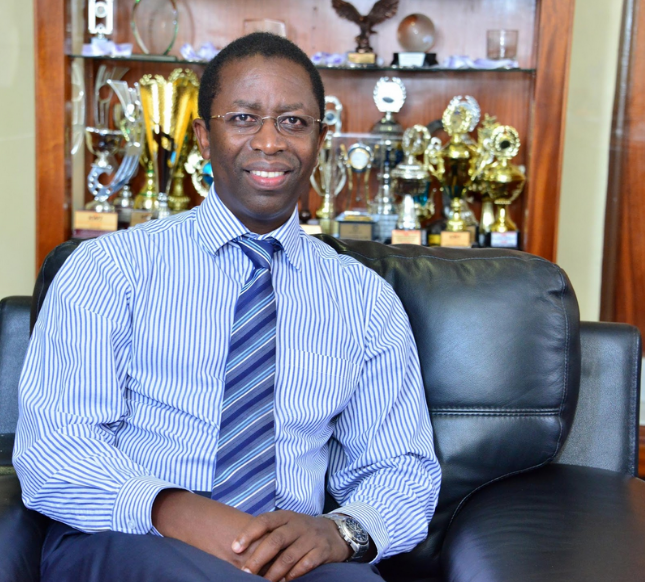
“We aim to develop a relationship with the family which is not only banking. Over time the relationship starts moving forward from one level to the next. That’s what financial inclusion is all about.
“We are 62 per cent owned by women, two-thirds of the Board members are women, 55 per cent of our employees are women and 100 per cent of our clients are women who operate small and micro businesses. We put women in the middle of our ecosystem. And even as we develop our products and look at what women need, the women are in the decision-making role and deciding their destiny,” he said.
